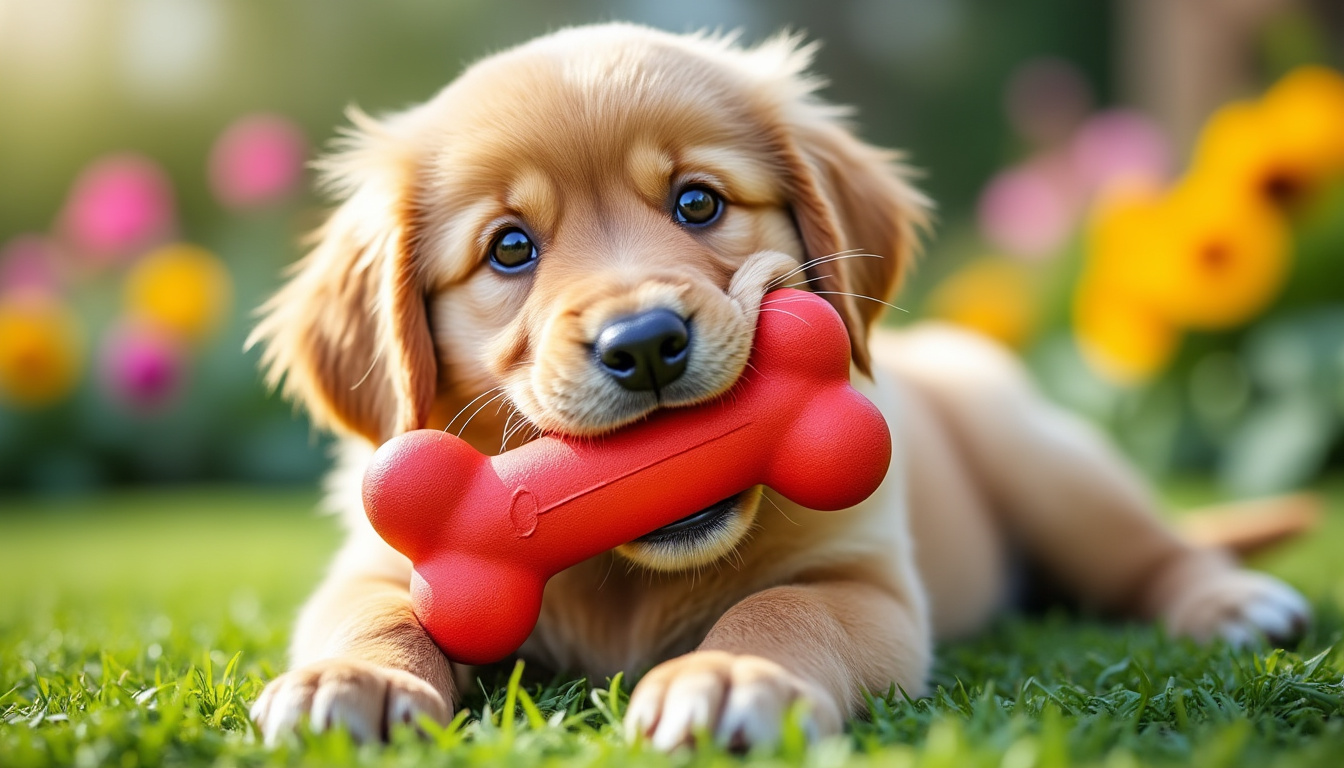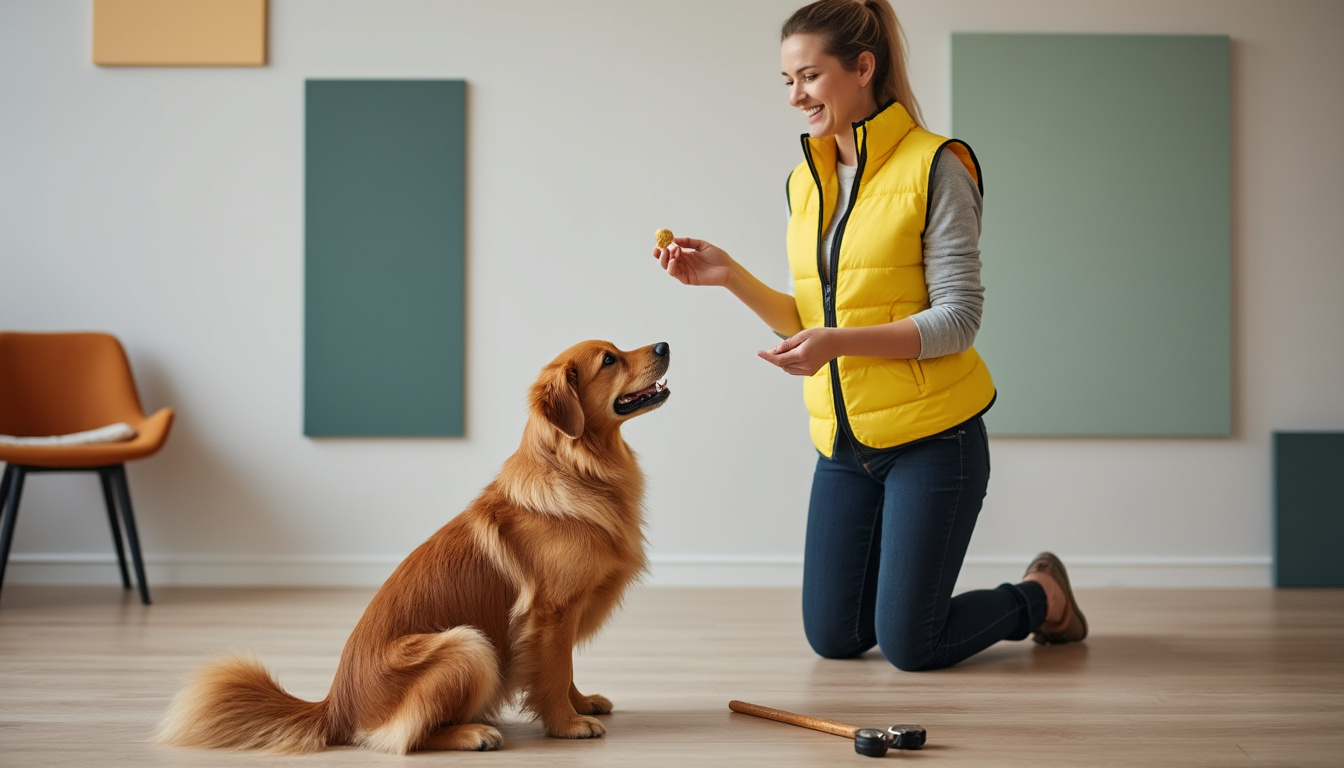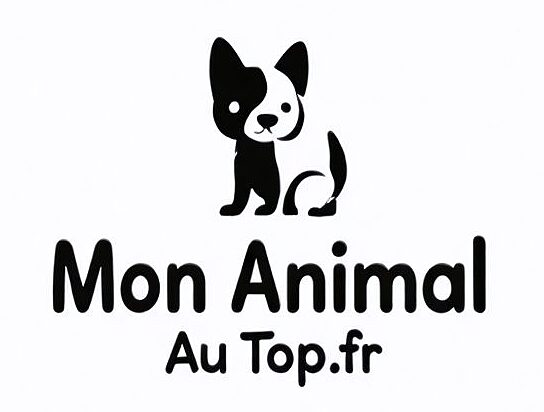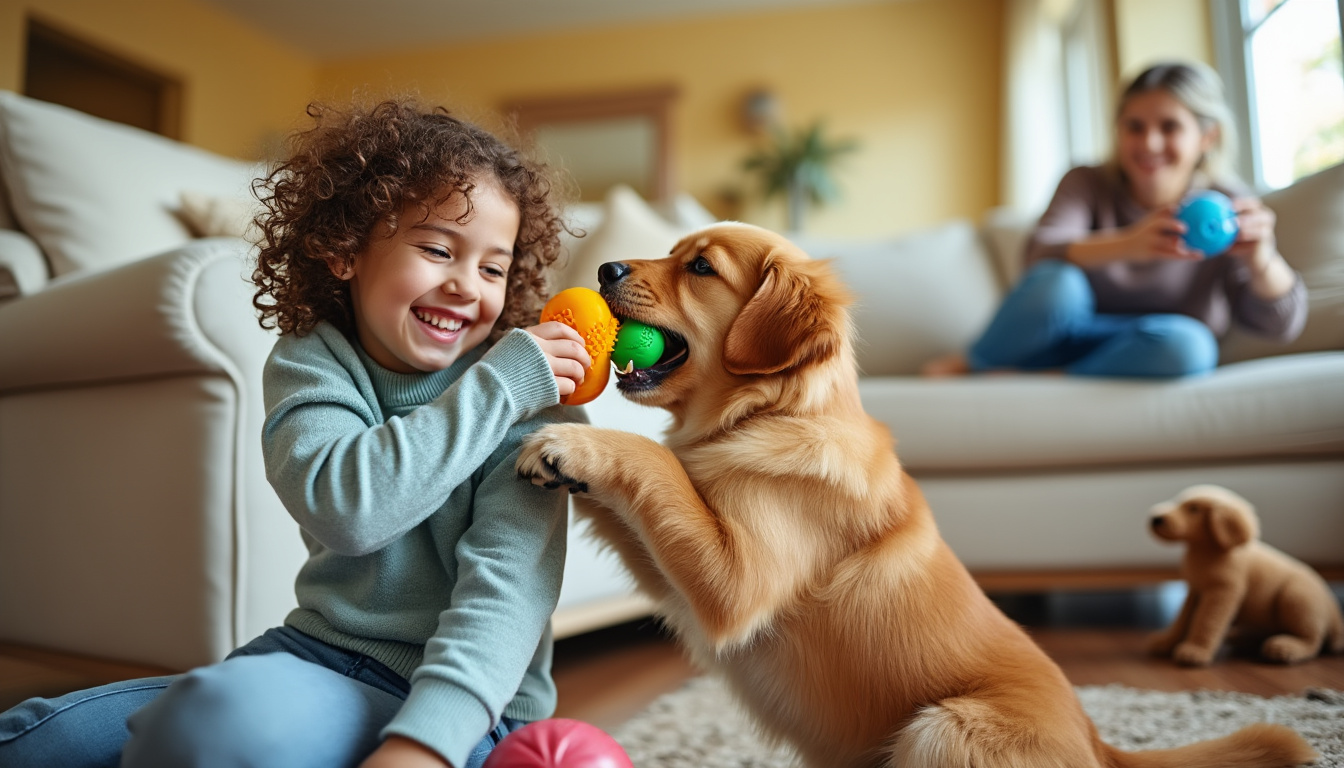Comment to manage bites and rough play in puppies?
Welcoming a puppy into your home is an adventure filled with joy and love. However, it can also be the beginning of a battle between sweet cuddles and unexpected little bites. Puppies, with their insatiable curiosity and enthusiasm, often explore the world around them by nibbling. This behavior, while natural, must be managed correctly to avoid issues of aggression or inappropriate rough play. This article will guide you in developing wise puppy training, using positive reinforcement techniques, while integrating suitable toys, and learning to respect the boundaries of your little four-legged companion.
Why do puppies bite and how to manage bites?
Understanding why your puppy bites is essential for correcting this behavior. Puppies primarily bite to explore their surroundings, test their teeth, or play. This should not be interpreted as a sign of aggression. Nevertheless, over time, these games can become painful, turning what starts as an adorable behavior into a problem. Managing bites appropriately is crucial to ensure a harmonious cohabitation.

The reasons behind puppy bites
Puppies use their mouths similarly to human babies who explore objects with their hands. This behavior is part of their development. Here are some common reasons why puppies bite:
- Exploration: Just like a child discovers their toys, a puppy explores its world by biting.
- Playing: Rough play is a way for puppies to test their limits with you and learn the rules of the game.
- Teething: At around five months, puppies experience pain due to their teeth coming in, prompting them to chew to relieve their discomfort.
How to teach your puppy not to bite
This is the key to managing your puppy’s bites. Here are steps to follow:
- Establish boundaries: From the moment the puppy arrives, use clear commands like “no” when the puppy bites. This should be done calmly and firmly.
- Offer toys: Have a variety of puppy toys on hand to redirect their biting behavior toward appropriate objects.
- Use positive reinforcement: When the puppy plays without biting, reward them with treats or praise. This reinforces desirable behaviors.
- Immediately interrupt the play: If your puppy bites too hard, stop the play immediately and walk away. This helps them understand that biting ends the fun.
Creating a suitable play environment
A flexible part of puppy training is making play enjoyable while establishing clear rules. Creating a play framework that encourages healthy interactions is essential. Use the right toys, and know what kind of games are appropriate for your puppy.
Choosing suitable toys
For a puppy, having a variety of puppy toys is essential. The toys should be sturdy enough to withstand their chewing. Here are some recommendations:
- Chewing toys: Tough rubber toys are perfect for soothing their gums.
- Pull toys: Ropes and tug toys are great for letting off steam while learning not to bite humans.
- Interactive toys: Use toys that dispense treats to mentally stimulate your puppy.
Avoiding rough play
To prevent your puppy from developing inappropriate behaviors, limit games that encourage excessive biting, such as wrestling or tug-of-war. These games can lead your puppy to bite harder. Instead, encourage calm games and promote respect towards their human companions. Educate your puppy by avoiding stimulating their hunting instinct by playing with your hands or pushing away, as this could be seen as a signal to play.
Positive reinforcement techniques in puppy training
Puppy training is not just about reprimands. Positive reinforcement techniques are the best method for promoting desired behaviors in puppies. By incorporating these techniques into your training approach, you will develop a stronger relationship with your new friend.

The reward as a learning engine
When a puppy develops good behavior, it is essential to reward them with a treat, petting, or praise. This teaches them that desired behavior leads to positive consequences.
- Treats should be small and tasty to quickly capture their attention.
- Praise your puppy enthusiastically when they play without biting.
- It is important to be consistent with rewards for effective learning.
Patience is key
It is essential to remember that each puppy learns at their own pace. Adopting a patient and calm approach fosters a conducive learning environment. This creates a bond of trust between you and your puppy, where they will feel safe to explore and learn.
Socializing the puppy: a crucial step
Socialization is a fundamental aspect of puppy education. By allowing them to meet other animals and people, you help them understand how to interact smoothly without using bites.
The importance of socialization
Early experiences with other dogs and humans will teach them the limits to respect. Good socialization prevents inappropriate biting behavior during play because your puppy will learn to communicate through appropriate social signals. Here are some tips:
- Arrange meetings with other well-socialized adult dogs. They will serve as role models by showing how to play gently.
- Expose your puppy to different people. Ensure they are surrounded by various types of individuals, including children, which is essential to reduce fearful reactions.
- Provide them with mental challenges by incorporating learning games into socialization.
Schedule regular interactions
Socialization should not be a one-time event. It is important that it becomes part of your puppy’s daily routine. Take them to pet-friendly cafés, dog parks, or even on city walks. Dynamic and varied environments will give your little companion the confidence needed to interact calmly with other animals and strangers.
| Type of activity | Recommended frequency | Goals |
|---|---|---|
| Meetings with other dogs | Weekly | Learning to play without biting |
| City walks | Daily | Familiarization with varied environments |
| Visits to friends | Bi-monthly | Reinforcement of social skills |



